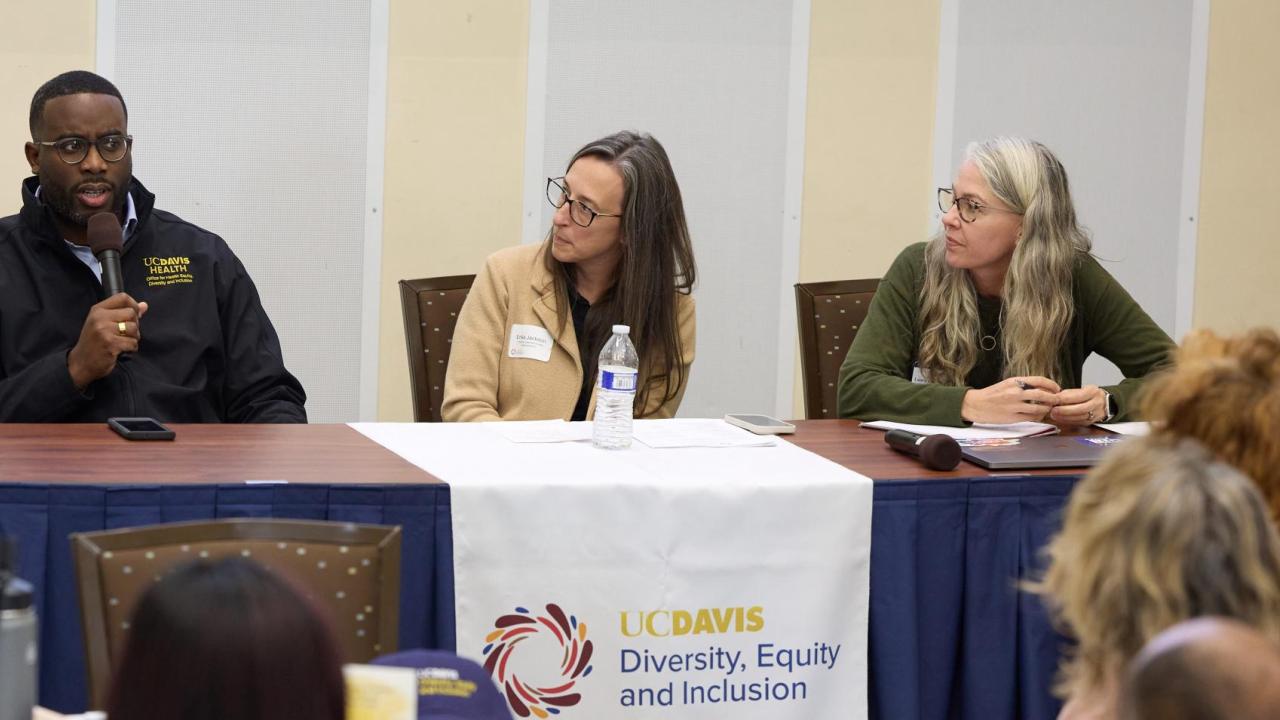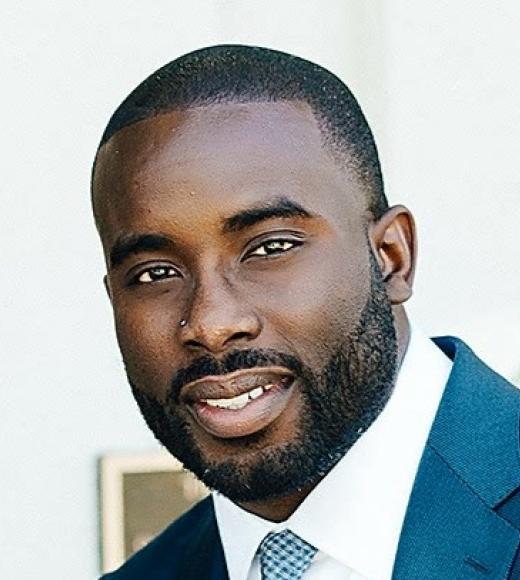
Ceasor Dennis: Why I DEI
Five questions with UC Davis Health leader in DEI and community engagement
Ceasor Dennis is the senior director of institutional culture, climate and community engagement at UC Davis Health. In this role, Dennis is responsible for leading efforts that will continue to transition UC Davis Health into becoming a fully inclusive, equitable and multicultural organization.
This includes helping UC Davis Health value and actualizes health equity, diversity and inclusion, and integrates the Principles of Community across its tri-part mission: teaching, research and public service.
Dennis works directly with leadership in the UC Davis Diversity Equity and Inclusion on the Davis campus, plus the UC Davis School of Medicine, the Betty Irene Moore School of Nursing and the administrative divisions of the UC Davis Health’s Office of the Vice Chancellor. He collaborates with educational and training programs across both campuses to address university culture climate, and professional development. He also engages and collaborates with community partners and stakeholders to help meet their needs.
UC Davis DEI recently had the opportunity to ask Dennis a few questions about his work in the DEI space and his "Why I DEI."

Q: Why did you choose to work at UC Davis?
A: I found UC Davis to be a place that walked the talk when it came to this type of work. Being part of a team that is committed to living and operationalizing DEI principles is an exciting opportunity. Plus, I was born at UC Davis Health and raised in Sacramento, so working at UC Davis Health had that extra special benefit of giving me the opportunity to help address the health needs of the communities where I grew up. Seeing the evolution of how UC Davis Health has grown throughout my lifetime and knowing that I'm a part of that positive impact has been really inspiring.
Q: How do you approach your work as senior director of institutional culture, climate and community engagement at UC Davis Health?
A: I like to start with the mindset that everyone matters and has something of value to add to the organization. When I think about the work of DEI, we help facilitate and cultivate an inclusive culture and climate that allows people to contribute their talents to UC Davis Health in a meaningful way.
I also want to make sure people, at all levels and in all areas of the university, feel empowered to be leaders in DEI. Many people have the aptitude and skills to be DEI leaders; they simply need the guidance or the opportunity to shine.
Q: Community engagement is also a big part of your work. How do you integrate the input of the community and, at the same time, move the university's mission in DEI forward?
A: We are very intentional in engaging the community. We work a lot with UC Davis Public Scholarship and Engagement. We also have a program called Anchor Institution Mission for Community Health that I'm very proud of. It specifically leverages the university's resources to help address community needs by addressing or removing social determinants of health through economic development. This could include everything from hiring people from under-resourced neighborhoods to work at the university to purchasing from small, diverse local vendors. As part of the program, we ensure they have access to the resources, tools and support to help them be successful.
We sometimes hear "DEI is fuzzy. It doesn't make sense or have concrete outcomes." So, to see UC Davis Health have such tangible outcomes as we work with our partners, such as McCarthy (the UC Davis Health California Tower contractor), and see them apply these DEI and community engagement principles to hire people from under-resourced neighborhoods and see those small, diverse businesses participate in big projects they otherwise wouldn't have the opportunity to be a part of, it's very encouraging and exciting. It's still in the early stage, but there will be great outcomes from this work.
Q: What are some other key projects that you are particularly proud that you and your team have accomplished?
A: The first would be the creation and growth of the I-DARE program, which stands for inclusion, diversity, anti-racism and equity. It started in the UC Davis schools of health in 2020 and was just launched on the main campus in the fall of 2023. To see everyone fully engaged and have leadership committed to supporting this initiative in a very meaningful way has been wonderful to be a part of. Being a part of the team that led that effort: helping I-DARE chairs and their task forces create strategies and action plans, implement pilots and projects, and then see results—that's been very, very encouraging. That's something I'm super proud of. We took it from its beginning to implementing action plans at the schools of health, and now we are on track to do it with the rest of the health system. I-DARE has and will continue to bring about meaningful change.
The other thing would be the changes we've made to our employee resource groups (ERGs). We now have senior leaders serving as executive sponsors of the ERGs. Seeing their engagement and commitment to their ERGs is inspiring. It's having a big benefit in helping the ERGs secure the resources they need and removing barriers so they can be successful.
Q: What is your "Why I DEI"?
A: My DEI principles are access, support and opportunities. I grew up in a very poor elementary school; it was so poor that it ended up closing. But, during those years, I always had teachers who saw something in me and my classmates. They provided access and opportunity to things we didn't have in our respective communities. Then, once we got into those internships or programs, they gave us the support we needed to help make sure we were successful.
I've often found that people will open up new doors and let you in; but then, they throw you into the deep end of the pool without the necessary support to help you succeed. I've been fortunate in my education and work experience to have people who presented me with opportunities that I went after, and they were always there to provide me with support to help me swim in the deep end. They didn't just leave me out there to flounder. I try to inform any project, program, partnership or activity with those same principles. That's why DEI matters to me. Everyone has something of value to add — at UC Davis and society at large. DEI, in my view, helps to make that happen in practical, meaningful ways for the individual, organization and broader community.
